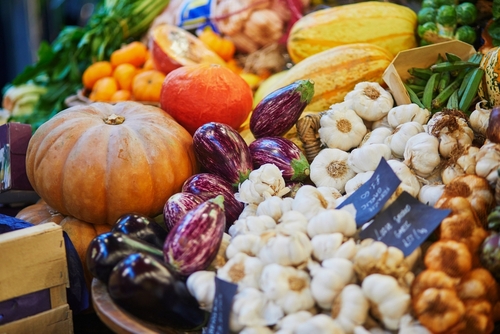Grub forgotten
- Like
- Digg
- Del
- Tumblr
- VKontakte
- Buffer
- Love This
- Odnoklassniki
- Meneame
- Blogger
- Amazon
- Yahoo Mail
- Gmail
- AOL
- Newsvine
- HackerNews
- Evernote
- MySpace
- Mail.ru
- Viadeo
- Line
- Comments
- Yummly
- SMS
- Viber
- Telegram
- Subscribe
- Skype
- Facebook Messenger
- Kakao
- LiveJournal
- Yammer
- Edgar
- Fintel
- Mix
- Instapaper
- Copy Link
Posted: 21 October 2024 | Dr Clive Black | No comments yet
Dr Clive Black reflects on the plight of the UK food industry and its ever stymied position at the back of the priority queue.


Amid all the engineered pledges and commitments to invest in the UK economy by a cohort of impressive and powerful international investors – albeit maybe wise to audit the delivery of said investments – there was seemingly no room at the inn for the largest industrial system in these Isles: the one relating to food.
Indeed, while the expansion of Stansted Airport (Essex) and a new £1 billion+ data centre in Oxfordshire do represent good news for the British economy – and after a woeful period of messaging from the Chancellor et al, we certainly need it – these investments will achieve little to level up across the regions of England and the Celtic periphery where the food industry is strategically more significant.
The overlooked importance of the British food system in a data-driven future
Among the commentary around the future being data driven and the push for a greener economy, the absence of any discourse from a strategic perspective surrounding the relevance and importance of the British food system is rather depressing. No doubt DEFRA – which is largely focused upon and responsible for the environment, at least in terms of priorities and rhetoric – will stage a food seminar at 10 Downing Street at some stage in future, but that misses the point.
As I have echoed before now, the food system is the largest segment of the UK economy, employing over four million people and utilising more land and gross built assets than any other. It happens to be at the centre of national food security, the Net Zero solution along with green energy progression and the debate around the evolution of the nation’s health, never mind its balance of payments (the UK imports c80 percent of the fruits consumed in this nation).
The neglect of the British food system amidst political distractions
Despite such credentials, our politicians are enticed by the glitz of the world of global investment banks, pharmaceutical firms, and the mega-7 US technology groups; organisations that have a commitment to the UK as shallow as the depth of a penny coin. The food system does not have the inclination or capability to be so flighty or demanding of its politicians. And yet it is so much more substantial to the economy.
This blind spot in Downing Street gripes all the more considering the words our political leaders speak set against the capabilities and priorities of the likes of DEFRA and the Foods Standards Agency, plus the dysfunctional planning regime, which are the anathema of economic growth. It is depressing, unsatisfactory and worrying all in one. Quite what it will take for the political system to support and enhance our food system rather than impede and bleed the good, who knows? In the meantime, a world-class British food system must press on unloved.
About the author


Related topics
Food Waste, Regulation & Legislation, Supply chain, The consumer









